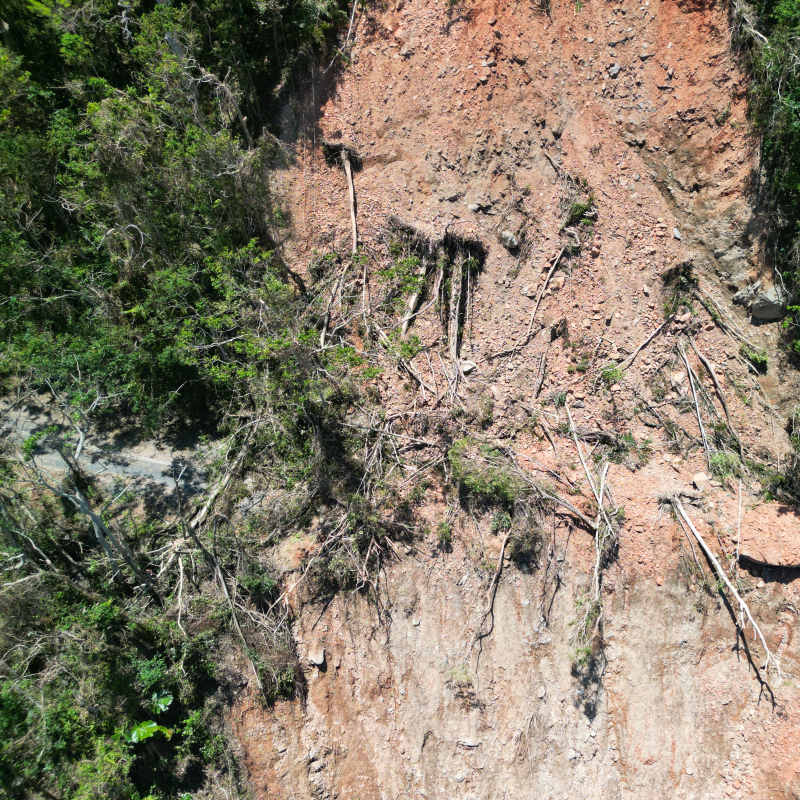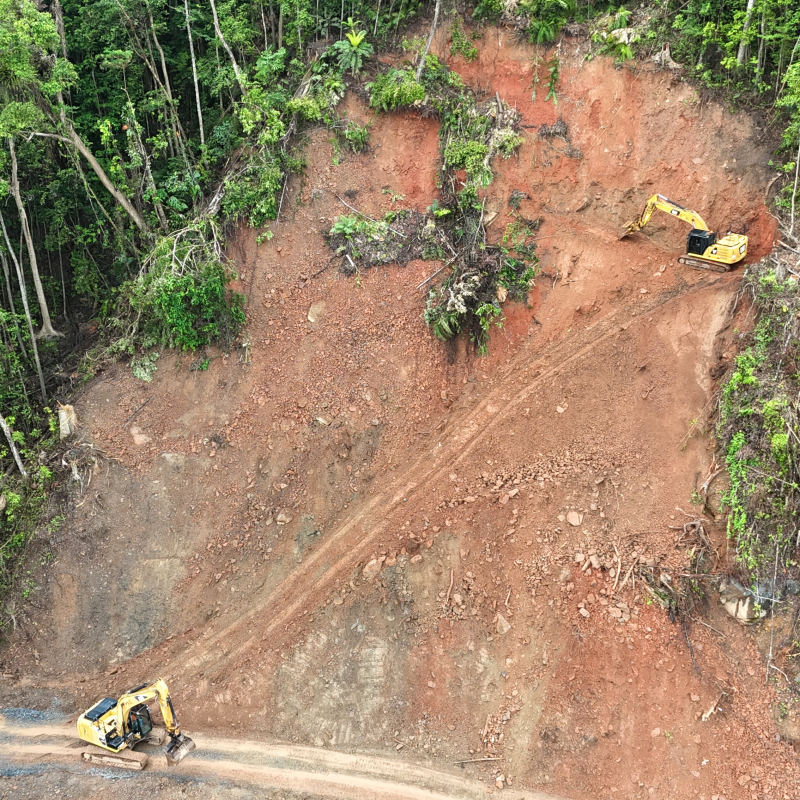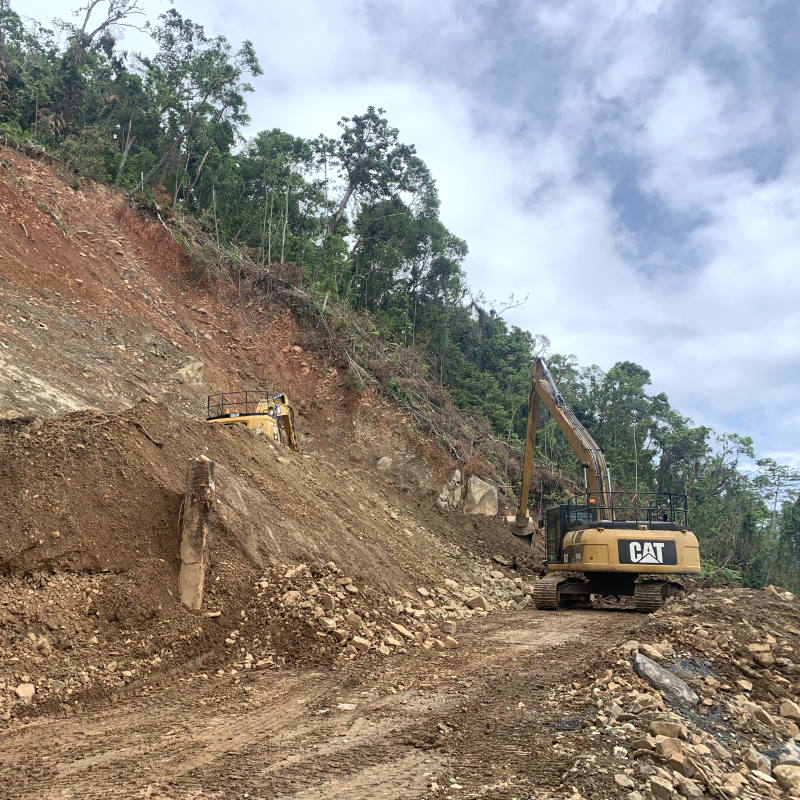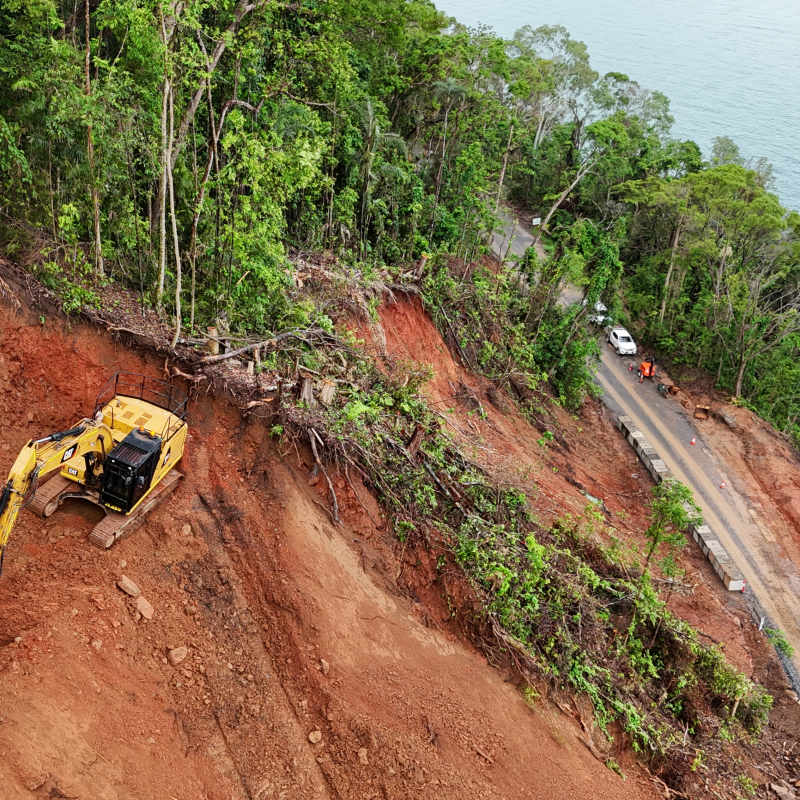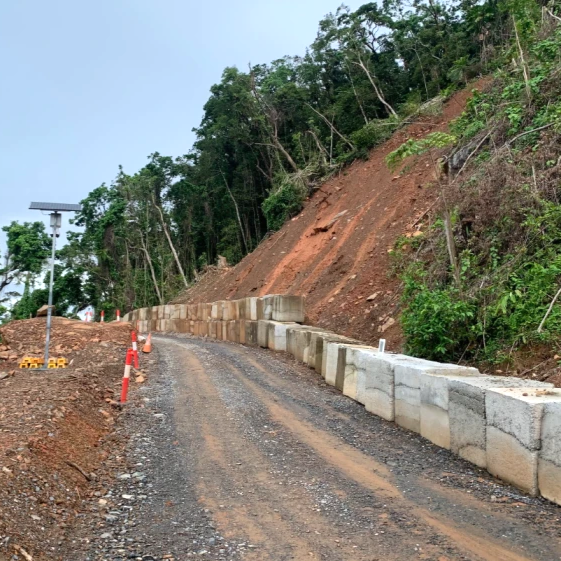Far North town's turnaround after repairs end total isolation
Cape Tribulation is truly unique.
Nestled between Port Douglas and Cooktown, the popular but remote tourist town stands alone as the only place on Earth where two World Heritage-listed sites – the Daintree Rainforest and the Great Barrier Reef – meet.
Its seclusion in a relatively undeveloped area is a blessing. Paradise preserved.
But during disaster season this dynamic can also prove a curse, as Cape Tribulation’s residents discovered in December 2023 after Australia’s wettest cyclone on record, Tropical Cyclone Jasper, all but isolated the small community and slammed the door shut on the area’s economic lifeline of tourism.
Jasper made landfall not far from Cape Tribulation, dumping over three metres of rain in less than a week and triggering more than 100 landslips that caused serious damage to critical infrastructure across Douglas Shire.
A massive 56-metre landslip at Noah Range blocked Cape Tribulation Road, the only two-wheel drive road through Daintree National Park to Cape Tribulation.
Access from the north was also blocked, with the scenic four-wheel drive route Cape Tribulation-Bloomfield Road cut by 10 landslips.
The impact was immense, and without mains power and road access the Cape Tribulation community, which relies on solar and diesel generators for its electricity, quickly ran out of fuel and supplies.
Interruptions also extended to services like waste collection and potable water, children missed school, and local businesses were forced to close.
Although largely isolated from the outside world, Daintree National Park is a key part of the local economy, attracting more than 200,000 visitors each year, and the loss of visitor revenue hit hard.
In the six weeks following Tropical Cyclone Jasper, tourism spending across Douglas Shire dropped almost 60 per cent year on year.
With tourism operators facing an uncertain future, securing the unstable mountain ranges and providing safe roads to reconnect Cape Tribulation became a priority.
Leading geotechnical engineers from Queensland's Department of Transport and Main Roads worked with highly skilled local engineering consultants and Douglas Shire Council crews to identify the best and safest way to clear the giant landslip.
They faced a mammoth task coordinating tricky and complex operations in dangerous and difficult conditions to remove eight metres of dirt and debris from five main areas north of Noah Creek Bridge.
Fearing a potential collapse of what remained of the road, engineers employed a staged approach to prevent further rock falls, stabilise the slip face, and create a safe passage through Noah Range.
More heavy rain in the months after ex-Tropical Cyclone Jasper caused extra issues as further instability led to tension fractures that required intensive monitoring and unavoidable short notice closures.
After more than 7,500 hours of work and the removal of 2,250 truckloads of debris, Noah Range was reopened to the public under traffic management on 28 March 2024.
This ended Cape Tribulation’s isolation, just in time for the busy Easter holiday period.
Restoring access gave local businesses a vital boost and enabled residents to access the Daintree ferry and other nearby communities including Mossman and Cairns.
Delivery of these vital roadworks was made possible with support under the jointly funded Commonwealth-state Disaster Recovery Funding Arrangements (DRFA).

